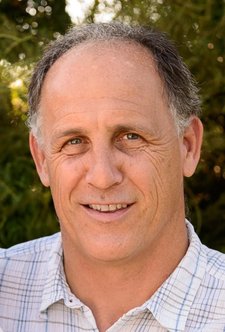
By Callum Borchers
March 14, 2024
They came, they saw, they conquered work. Then they shrugged.
Some strivers who piled up money and status say they’re over the endless hustle and are embracing what they call a “post-achievement” lifestyle with family, health and passion projects taking priority over career accomplishments.
Another promotion? Too busy surfing. Deferred compensation that’s oh-so-close to vesting? Slipping the golden handcuffs is less painful than you might think.

ILLUSTRATION: BEN GILES
Post-achievement professionals aren’t necessarily retired, even if they’re financially set for life. Many have transitioned to roles with fewer hours and responsibilities to make time for pursuits they find more meaningful such as podcasting, meditating and playing guitar.
Rather than grab every available dollar and accolade, Kevin Dahlstrom quit a seven-figure, round-the-clock job in 2018. He prefers to be seen as a bold, slightly mysterious figure who could have risen higher but opted out on his own terms.
“I’d be lying if I said that doesn’t stroke my ego,” says Dahlstrom, who left a chief-marketing-officer role and moved to Boulder, Colo., to rock climb. Professional acquaintances sometimes refer to him as a legend because he jumped off the corporate ladder in a way that most people only dream about. “Who wouldn’t like being called a legend, right?”

Kevin Dahlstrom left a chief-marketing-officer role and moved to Boulder, Colo., to rock climb. PHOTO: JEFF JONES
At age 53, he estimates that he passed up more than $10 million of future earnings but says he doesn’t need to make another penny. He recalls an executive meeting where he looked around the room, saw high-powered colleagues who seemed unhappy, and thought: What’s the point of grinding if it doesn’t bring joy?
He’s still ambitious and recently accepted a more flexible marketing-executive position at a smaller company that allows him to be on task as needed, and on a mountain whenever climbing conditions are good.
“To me, that’s nirvana because I still want to do hard things and work on fun projects,” he says. “But I also want that to be only one part of my life—and not the biggest part of my life anymore.”
Less money, more passion
Here’s the thing about getting to post-achievement status: You have to earn it by doing something impressive first.
The former go-getters I’ve met aren’t the types who could have coasted through middling careers from day one, despite being full of potential. (That would make them quiet quitters or, perhaps, masters of work-life balance.) They needed to prove, to themselves and others, that they could excel at high levels. Only then—with killer résumés and F-you money—could they make dramatic life changes.
Khe Hy, who helped popularize the term post-achievement on his website and YouTube channel, RadReads, says it’s hard not to look back. He left his job as a hedge-fund managing director in 2015 and still feels the occasional pang of envy when he considers the riches that former colleagues have accumulated. Hy, 44, says he’s sitting on about $5 million, probably enough to retire to a frugal lifestyle, but likely not enough to sustain his family forever in pricey, coastal California. Had he remained on Wall Street for a few more years, he might never have to work again.

Former hedge-fund managing director Khe Hy says, ‘I consider myself post-achievement because I’m not really striving for anything.’ PHOTO: HENRY THONG
Still, he moves past those feelings by remembering how numb he’d become to big paydays in finance.
“The key moment is when you realize that no next achievement will significantly change your baseline happiness,” he says. “I consider myself post-achievement because I’m not really striving for anything.”
That’s not entirely true. Hy is trying to bulk up but struggles to add weight to his 155-pound frame. Between running 25 miles a week and surfing almost daily, it’s tough to sculpt more than a lean six-pack, you know?
His RadReads business, which includes coaching for hard-charging professionals who want to rebalance their lives, generates about $200,000 annually. He works about 35 hours a week but controls his schedule and no longer fixates on career advancement.
Rachel Barek, 44, isn’t ready to step down as chief executive of Said Differently, the marketing agency she co-founded, anytime soon. But the majority stake she and her partner sold to a private-equity firm comes with a lifetime of financial security, she says.
“I could very easily fall into the trap of being a serial entrepreneur. I was born that way,” she says. “A lot of serial entrepreneurs are scared of the white space in their lives, and I’m really excited by that white space.”
In her future post-achievement phase, Barek plans to do something radically different: beauty school. She developed the interest while cutting her son’s hair at home during the pandemic and wants to offer pro bono barber services for children with special sensory needs and others who can’t afford to pay. But she concedes her clipping skills could use some work.
Avoiding the success trap
Kristopher Abdelmessih says he was six months shy of collecting about $1 million of deferred compensation when he walked away from his job as an options trader in 2021.
“Maybe it was rash, but I’ve replayed this in my head many times, and I don’t think I would do it any differently,” he says. “I was done.”
Abdelmessih, 45, was motivated to succeed by his modest upbringing in an immigrant household. There would be no safety net if he sputtered professionally, so he picked a field that paid well, played to his strengths and didn’t require graduate school.
But trading was never a calling. Leaving wasn’t so much about losing ambition as it was about a desire to chase fulfilling interests, like tutoring low-income students, gaining the confidence to play guitar on stage for the first time and traveling with his family six to eight weeks a year.
He and a business partner are in the early stages of developing a trading software tool that Abdelmessih hopes will become profitable. If it takes off and demands more of his time someday, that’s OK with him because it’s a passion project.
Jason Chow, a financial-services firm vice president, isn’t post-achievement yet, but he wants to be. Chow, 45, and many others say they’ve climbed high enough to realize each progressive rung brings new hassles and fleeting satisfaction.
“It resonates with me because my life is work, and I know there’s more,” he says. “I just haven’t found what that is yet.”
Dow Jones & Company, Inc.



